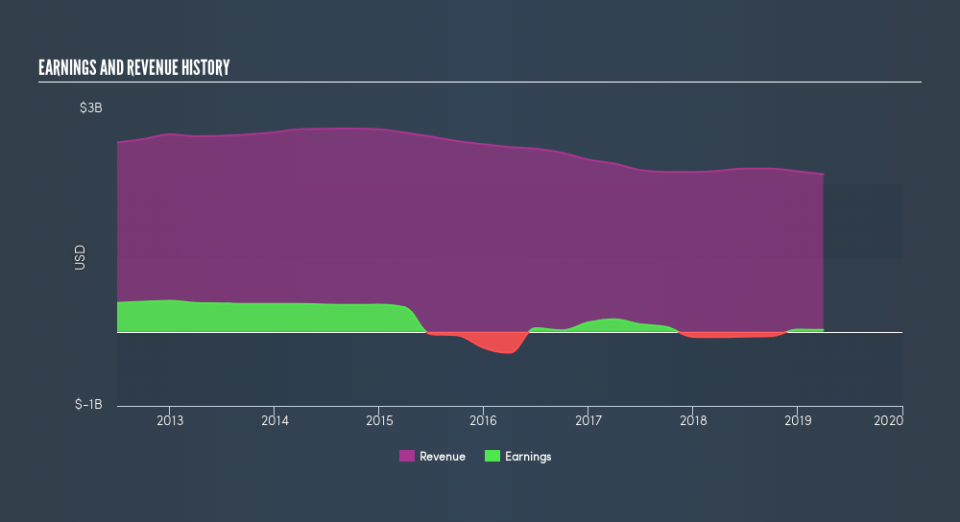Does Teradata Corporation (NYSE:TDC) Have A High Beta?

Want to participate in a short research study? Help shape the future of investing tools and you could win a $250 gift card!
If you own shares in Teradata Corporation (NYSE:TDC) then it's worth thinking about how it contributes to the volatility of your portfolio, overall. In finance, Beta is a measure of volatility. Modern finance theory considers volatility to be a measure of risk, and there are two main types of price volatility. The first type is company specific volatility. Investors use diversification across uncorrelated stocks to reduce this kind of price volatility across the portfolio. The second sort is caused by the natural volatility of markets, overall. For example, certain macroeconomic events will impact (virtually) all stocks on the market.
Some stocks see their prices move in concert with the market. Others tend towards stronger, gentler or unrelated price movements. Beta can be a useful tool to understand how much a stock is influenced by market risk (volatility). However, Warren Buffett said 'volatility is far from synonymous with risk' in his 2014 letter to investors. So, while useful, beta is not the only metric to consider. To use beta as an investor, you must first understand that the overall market has a beta of one. A stock with a beta below one is either less volatile than the market, or more volatile but not corellated with the overall market. In comparison a stock with a beta of over one tends to be move in a similar direction to the market in the long term, but with greater changes in price.
See our latest analysis for Teradata
What does TDC's beta value mean to investors?
Teradata has a five-year beta of 0.97. This is reasonably close to the market beta of 1, so the stock has in the past displayed similar levels of volatility to the overall market. While history does not always repeat, this may indicate that the stock price will continue to be exposed to market risk, albeit not overly so. Share price volatility is well worth considering, but most long term investors consider the history of revenue and earnings growth to be more important. Take a look at how Teradata fares in that regard, below.
Does TDC's size influence the expected beta?
Teradata is a fairly large company. It has a market capitalisation of US$4.0b, which means it is probably on the radar of most investors. We shouldn't be surprised to see a large company like this with a beta value quite close to the market average. Large companies often move roughly in line with the market. In part, that's because there are fewer individual events that are signficant enough to markedly change the value of the stock (compared to small companies, at least).
What this means for you:
It is probable that there is a link between the share price of Teradata and the broader market, since it has a beta value quite close to one. However, long term investors are generally well served by looking past market volatility and focussing on the underlying development of the business. If that's your game, metrics such as revenue, earnings and cash flow will be more useful. In order to fully understand whether TDC is a good investment for you, we also need to consider important company-specific fundamentals such as Teradata’s financial health and performance track record. I highly recommend you dive deeper by considering the following:
Future Outlook: What are well-informed industry analysts predicting for TDC’s future growth? Take a look at our free research report of analyst consensus for TDC’s outlook.
Past Track Record: Has TDC been consistently performing well irrespective of the ups and downs in the market? Go into more detail in the past performance analysis and take a look at the free visual representations of TDC's historicals for more clarity.
Other Interesting Stocks: It's worth checking to see how TDC measures up against other companies on valuation. You could start with this free list of prospective options.
We aim to bring you long-term focused research analysis driven by fundamental data. Note that our analysis may not factor in the latest price-sensitive company announcements or qualitative material.
If you spot an error that warrants correction, please contact the editor at editorial-team@simplywallst.com. This article by Simply Wall St is general in nature. It does not constitute a recommendation to buy or sell any stock, and does not take account of your objectives, or your financial situation. Simply Wall St has no position in the stocks mentioned. Thank you for reading.

